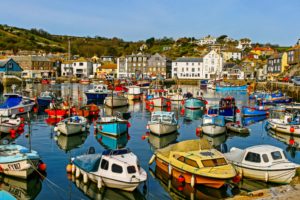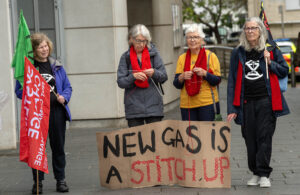Cornwall aims to achieve a ‘doughnut economy’
Progress towards a fair and sustainable economy is happening at differing rates in different parts of Cornwall, according to a new report published by researchers at the University of Exeter.
In — Cornwall became the first county in the UK to adopt the concept of doughnut economics.
The concept, which came from economist Kate Rawarth, is in line with the principles of a regenerative and redistributive economy. Instead of growth in GDP being the hallmark of a society’s well-being, in a doughnut economy, the focus is on well-being and the balance of human socio-economic and ecological health.
In the report, the researchers highlighted that progress on achieving sustainable development is ‘not uniform.’
In a questionnaire from 50 Town, Parish and City Councils, the majority of respondents revealed that they are concerned about the environmental issues of sustainable land management, biodiversity and managing waste.

‘Following a major campaign to hear from people about ‘the Cornwall We Want’ for future generations, partners across Cornwall have embarked on an ambitious agenda to pursue environmental and social sustainability.
‘This report shows the significant role local councils and communities are playing.’
‘Increasing the scope for local decision making and leadership should allow communities to develop appropriate plans for change.’
















Might I offer, with 33 years of experience in Permaculture Design, 258-acre Regenerative Farming Design of Hoku Nui Maui, LLC, Hokunui.com, 2012-2016, and ecological building, teaching globally, since 1993, and writing many articles that the word sustainable is a dial tone, a flat-lining, and only one step better than the suicidal paradigm we are exiting?
The gift of Nature, the beauty of our true Nature, as Nature is regenerative, and aligns in mutually beneficial relationships, efficiency, functional artisanal tools shared, stacking functions and reaps abundance, resilience and a dynamic stability where every life wins, all life, and ecosystems flourish.
I am moving to the UK, soon as possible, and will be exploring living in Cornwall. I am eager to be of Sacred Service to a wave of sanity across the UK, beginning in Cornwall, home of my great grandfather, Henry Charles Stewart Brown, from Kenwyn, Cornwall.
Aloha, Claire